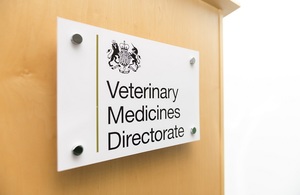- Business Secretary confirms how the £39.8 billion R&D budget for 2022-2025, the largest ever, will be allocated between partner organisations
- allocations will deliver on the government’s Innovation Strategy, including the ambition to increase total R&D investment to 2.4% of GDP by 2027
- investments will enable the government to strengthen our world-leading R&D system and cement the UK’s position as a science superpower and innovation nation
The largest ever research and development budget, worth £39.8 billion, has been allocated across the Department for Business, Energy and Industrial Strategy’s partner organisations, the government has confirmed today.
Driving forward the government’s ambitions as a science superpower, the Spending Review committed record levels of investment in the UK’s world-leading research base over the next 3 years, with R&D spending set to increase by £5 billion to £20 billion per annum by 2024-2025 – a 33% increase in spending over the current parliament by 2024-2025.
The allocations will allow the government to deliver on the ambitions set out in the Innovation Strategy, with these investments supporting our commitment to ensure total R&D spending reaches 2.4% of GDP by 2027.
These investments will contribute to the new cross-government approach on research and development, helping to deliver strategic advantage in science and technology, work alongside industry to leverage private investment, and deliver prosperity, security and resilience this century.
In turn, the investment will support priorities that are key to the UK’s prosperity, from tackling climate change to levelling up opportunities across the country, enabling investment in new technologies from clean tech to AI, where the UK has a strong competitive advantage globally and industrial strength at home.
Business Secretary Kwasi Kwarteng said:
For too long, R&D spending in the UK has trailed behind our neighbours – and in this country, science and business have existed in separate spheres. I am adamant that this must change. Now is the moment to unleash British science, technology and innovation to rise to the challenges of the 21st century.
My department’s £39.8 billion R&D budget – the largest ever R&D budget committed so far – will be deployed and specifically targeted to strengthen Britain’s comparative advantages, supporting the best ideas to become the best commercial innovations, and securing the UK’s position as a science superpower.
This includes full funding for EU programmes, for which £6.8 billion has been allocated to support the UK’s association with Horizon Europe, Euratom Research & Training, and Fusion for Energy. If the UK is unable to associate to Horizon Europe, the funding allocated to Horizon association will go to UK government R&D programmes, including those to support new international partnerships.
A significant proportion of the budget has been allocated to UK Research & Innovation (UKRI), which will receive over £25 billion across the next 3 years, reaching over £8.8 billion in 2024-2025, its highest ever level and over £1 billion more than in 2021-2022. This will include an increase in funding for core Innovate UK programmes by 66% to £1.1 billion in 2024-2025, helping connect companies to the capital, skills and connections they need to innovate and grow.
The UK Space Agency’s budget will also grow to over £600 million by 2024-2025, recognising the fact that our world-leading space sector adds nearly £16 billion to UK GDP while underpinning complementary parts of the economy including finance, logistics and agriculture. This is equivalent to a real terms increase of 14%.
These allocations follow the government’s recent commitments made in the Levelling Up White Paper to increase public investment in R&D outside the greater South East by at least a third over the Spending Review period, and for these regions to receive at least 55% of BEIS domestic R&D budget by 2024-2025.
The government’s ambitious R&D investment plans, combined with our generous R&D tax credits programme, will give businesses the confidence to invest in the field following the pandemic, with research finding that every £1 of public expenditure in R&D eventually leverages an average of £2 of additional private investment.
Read the full partner organisation allocations publication.

